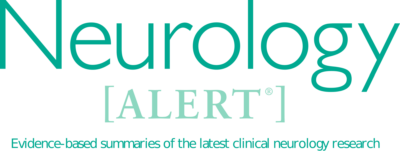
Neurology Alert – July 1, 2018
July 1, 2018
View Issues
-
Predicting the Risk of Late-onset Alzheimer’s Disease and Dementia Based on Common Genetic Variants
Using a genetic risk score of 23 common genetic variants and apolipoprotein E genotype could help stratify individuals into those very likely to those very unlikely to develop late-onset Alzheimer’s disease and dementia.
-
Ufmylation and Brain Development: Effects of Gene Mutations
Genetic mutations that can modify post-translational proteins and their interactions may result in serious developmental disorders of the brain. Ufmylation is such a process, and mutations in the genes that regulate this process may have profound effects on the developing brain.
-
Cannabidiol: Does It Help in Drug-resistant Epileptic Encephalopathies?
In this double-blind, placebo-controlled trial, the authors investigated the efficacy of adjunctive cannabidiol in a population of severe developmental epileptic encephalopathies and found some efficacy.
-
Chemotherapy-induced Neuropathy in Childhood Cancer Survivors
Long-term symptoms and disability from chemotherapy-induced peripheral neuropathy occur in more than half of childhood survivors of cancer, with vinca alkaloids and platinum agents implicated most often.
-
Prodromal Symptoms Predict the Onset of α-Synucleinopathies
In this review of the common prodromal symptoms of α-synucleinopathies, such as Parkinson’s disease, dementia with Lewy bodies, and multiple system atrophy, the authors provided a potential framework for a timeline of the development of these conditions, starting with these prodromal symptoms.
-
Dual Antiplatelet Therapy for Minor Ischemic Stroke or TIA
These investigators undertook this study to evaluate the effect of clopidogrel plus aspirin, vs. aspirin alone, in an international population of patients who had minor ischemic stroke or TIA — Platelet-Oriented Inhibition in New TIA and Minor Ischemic Stroke (POINT).
-
Tenecteplase vs. Alteplase for Ischemic Stroke
In a recent trial, treatment with tenecteplase before thrombectomy was associated with a higher incidence of reperfusion and better functional outcome than alteplase if administered to patients with ischemic stroke within 4.5 hours of symptom onset.
